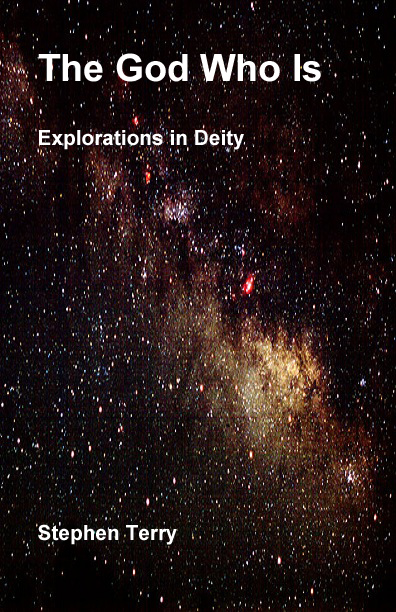The
Crisis (Within and Without)
Stephen
Terry
Commentary
for the October 10, 2015 Sabbath School Lesson
 “You
are not to do as we do here today, everyone doing as they see fit, since you
have not yet reached the resting place and the inheritance the Lord your God is
giving you.” Deuteronomy 12:8-9, NIV
“You
are not to do as we do here today, everyone doing as they see fit, since you
have not yet reached the resting place and the inheritance the Lord your God is
giving you.” Deuteronomy 12:8-9, NIV
An online game, “March of Empires,” one of many in the
genre allows each player to have a castle and develop technologies, armies and
alliances in real time competition with other players. In a “King of the Hill”
type battle, players vie with one another to control the “Seat of Power,” a
region in the center of the world map. No one is quite sure what will happen
once that goal is reached, but the struggle ensues nonetheless. Each alliance may
consist of as many as one hundred players who log on at various times from all
over the world, and the leader of an alliance is severely challenged to
co-ordinate all those players, often speaking several different languages. But
the language challenge is not the greatest obstacle to unit cohesion as the
players struggle together to achieve various milestones. Many of the players,
whether veteran players or wet-behind-the-ears “newbies,” seem to have their
own ideas about how to play the game. Even for the most dedicated and
experienced leader, the experience is like trying to herd cats.
Some players, whether it is because of language or time
zone differences, rarely participate in alliance events. Other players are
constantly setting off “brush fires” by indiscriminately attacking friend and
foe alike. Still other players are constantly demanding that the more experienced
players save them from the results of bad decisions they make. A wise leader
soon learns that he or she must work with the willing, often to overcome the
problems created by those who are going their own way. He or she must also deal
effectively with those who are unable or unwilling to learn from their bad
choices. In all of this, there are striking parallels to what God and the
children of Israel have experienced down through the several millennia of their
relationship. Over and over again, Israel is depicted as “everyone doing what
is right in his own eyes.”[i] This is very much like the
personalities of cats who deign to come when we call only if it suits them.
Apparently, God must have vast patience, for He seems to be the greatest cat
herder of them all.
Perhaps such behavior would not be problematic if we saw
things the same way God does, for we would naturally follow the correct course,
but we often do not. Instead, we may consider our perversity wisdom and take a
foolish path.[ii]
In the online game, wisdom would be to seek counsel of those who better
understand the game and then follow that advice, testing its continued efficacy
by the results. The same would seem to apply to our relationship to God. We may
seek advice of those more experienced in following the Way.[iii] However, unlike the
online game which has no actual manual and relies solely on results, we have a
more enduring method to examine the efficacy of the counsel we receive. We may
test that advice against the Bible. This, of course, implies that we know what
the Bible says, or at least how to find what it says on the matter in question.
Old School, we looked up that information in concordances and then examined the
context, both literal and historical, to determine what was the correct path to
follow. Now we can use powerful online search engines to quickly scan the
entire text of the Bible to find what we are looking for. Then we can expand
the search to immediate context or the entire chapter. Additionally we can “Google”
for key phrases and persons to expand our context into historical and literary
references.
But there is still a danger here. We may choose to only
search for that information which supports what we believe to be true, or
worse, to directly challenge a course we really already know to be right. Our
desire to go our own way may be so strong that we may be willingly blind to
that which would save us from our error.[iv] The terrible thing about
such a course is that it can become multi-generational.
Who does not know the child who has figured out that he
or she is smarter than their parents? They eschew advice and pursue a divergent
course. But if the parents were in error compared to the previous generation
for a similar reason then the next generation may magnify that error as their
rebellion takes them even farther astray. Israel’s history shows this tendency
as other generations arose after the Exodus that did not know that experience
and may have considered it irrelevant to their more “modern” experience.
Pressures may have existed for them to conform to the habits and practices of
the surrounding cultures. Feeling this to be the correct path, they then
brought those practices home to their families and communities. Initially,
these may have been seen for the typical teenage rebellion that they were, but
over time as the teenagers became adults, those ideas and principles became
normalized through widespread acceptance. Then they, in turn, became the old
fashioned way that the next generation confronted by going even further astray
to challenge what had been the previous rebellion.
With the passing of the generations, rebellion can
become institutionalized as something to be pursued for its own sake. It matters
little what is right or wrong so much as that the dominant paradigm must be
subverted.[v] While this may accomplish
breakthroughs in some endeavors, it necessarily supposes that the existing
paradigm is in error. This becomes problematic when confronted by One who
claims to be the Truth. This powerful claim challenges the validity of the
subversion. This is perhaps the very struggle that embroiled Jeremiah and his
entire ministry to Israel. He asserted that there was one absolute truth to a
nation descended into relativism. This struggle resonates to us today for we fight
similar battles.
Is it possible to proclaim truth to a world committed to
relativism? The Gospel Commission seems to mandate it.[vi] So what does that look
like in that relativistic environment? Jeremiah gives us a clue. His was not an
easy path. The book Lamentations reveals that it was a path filled with tears.
Although God told Jeremiah that He would make him a brazen wall against his
enemies,[vii] the reality was that
Jeremiah was abused and tossed into a dungeon to die. Rescued by a faithful
servant of God, he nonetheless was kept in the prison pending the fall of the
city to the Babylonians.[viii] This imprisonment is
comparable to the imprisonment of John the Baptist, who challenged his king
similarly with a faithful testimony to the truth. However, unlike John, Jeremiah
was not put to death. Naturally, this does raise the question, “Why was Jeremiah
rescued from the possibility of death in the cistern, while there was no rescue
for John?” There was no apparent promise of protection for John as there was
for Jeremiah, but, that reason aside, perhaps this is only a testament to the inscrutable
character of God. Of course that attribute comes to God by definition. Inscrutability
is the antithesis of any limitation that would make God the personal “god-in-the-box”
that some, Christian or not, carry about with them.
Maybe this is why our relationship with God is often
reduced to the stark command, “Obey.” In the face of such inscrutability, what
are we left with but faith that what God requires is good and that obedience is
the only recourse to such good? The only other option might be to deny that
goodness and rebel, either actively or passively. Per the Bible, that did
happen, in heaven of all places, and the rebellion failed.[ix] When one considers that the
rebels were heavenly beings, and they failed, the futility of human rebellion
seems apparent. Nonetheless, as Jeremiah discovered, the rebels have an uncanny
way of convincing themselves that rebellion is still possible and right. Should
we, like Jeremiah, speak truth to power, we may uncover that same spirit,
whether that power is secular or religious, within our individual denominations
or without.
Should we then remain cloistered within hallowed walls,
avoiding contact with the rebels surrounding us, feeling secure in our
isolation, or do we venture forth as commissioned and risk the wrath of those
committed to that rebellion? If the battle lines were clearly defined, it might
make sense to remain behind holy fortifications, but some are not fully
committed to rebellion. Some want to escape from the despair of a losing
alliance and are eager to find their way to the winning side, if only someone
could come and show them the road home. They may be looking for a Jeremiah with
the fortitude to give them the strength to break away from the rebel camp. We
may be their pathway out
